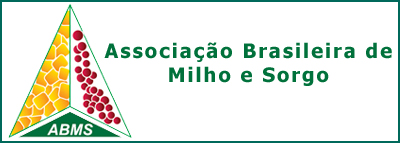VARIATION ON MAIZE GREEN EARS AND GRAIN YIELD IN RESPONSE TO WEED COMPETITION
DOI:
https://doi.org/10.18512/1980-6477/rbms.v6n01p%25pPalavras-chave:
Zea mays, rendimento de espigas verdes, milho verdeResumo
The objective of this study was to verify whether maize cultivars behave differently, in competition with weeds, to produce green ears and grain. Randomized complete block design was used, with split-plots and five replications. Cultivars AG 405, AG 2060, BA 8517, BA 9513, DKB 435 and EX 6005, applied to the plots, underwent the following treatments: without weeding and two weedings (22 and 41 days after planting). Only ten weed species were found in the experiment, many of which were gramineae. There was no difference among cultivars in relation to the number of weeds m-2. The number of weeds in the weeded plots (70.0 m-2) was superior to the one of the no-weeded plots (32.8 m-2). The cultivars only differed in grain yield when the weeds were controlled, with BA 8517 cultivar standing out as being superior. Therefore, the cultivars presented different reductions in grain yield with the presence of weeds suggesting that some (AG 405, BA 9513 and EX 6005) are more competitive than others against weeds. The weeds reduced green ears yield, in addition to 16 of the 26 evaluated characteristics, including some traits of the stalk, leaves, tassel, ear and grain.
Downloads
Publicado
Como Citar
Edição
Seção
Licença
Autores que publicam nesta revista concordam com os seguintes termos:- Autores mantém os direitos autorais e concedem à revista o direito de primeira publicação, com o trabalho simultaneamente licenciado sob a Creative Commons Attribution License que permitindo o compartilhamento do trabalho com reconhecimento da autoria do trabalho e publicação inicial nesta revista.
- Autores têm autorização para assumir contratos adicionais separadamente, para distribuição não-exclusiva da versão do trabalho publicada nesta revista (ex.: publicar em repositório institucional ou como capítulo de livro), com reconhecimento de autoria e publicação inicial nesta revista.
- Autores têm permissão e são estimulados a publicar e distribuir seu trabalho online (ex.: em repositórios institucionais ou na sua página pessoal) a qualquer ponto antes ou durante o processo editorial, já que isso pode gerar alterações produtivas, bem como aumentar o impacto e a citação do trabalho publicado



